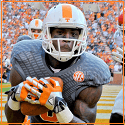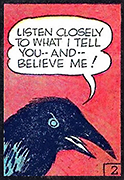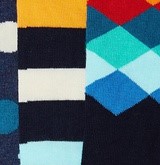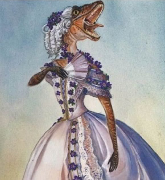|
Offler posted:Hey, that is how I discovered how much I hate it when people say "ni" to me, although this was in Norway rather than Denmark. When I lived in Norway my work mates wanted to impress me with their Swedish, but the Swedish they spoke was so obviously based on Pippi Longstocking movies from before the "du" reform so they started saying "ni" to me without even realizing it. Also, it was really funny how they all adopted this old-timey tv accent when they switched to Swedish, an accent I doubt anyone ever really used in their daily lives, with the possible exception of Stockholm cabbies in the 1950s or whatever. "Jåkkan pråtta sveenska!" Nah that's an actual stockholm accent. A thing to remember about swedish (and many other languages), not only are there regional accents but also generational accents. And the latter tend to be much stronger, wide reaching, universal, ie succesful, than other accent forms. Stockholm alone has 7+ accents today if we're being generous. Also the english [Ash] is a separate letter in the nordics. It's what æ or ä means. ( I think? )
|
|
|
|

|
| # ? May 15, 2024 10:52 |
|
ThisIsJohnWayne posted:Nah that's an actual stockholm accent. A thing to remember about swedish (and many other languages), not only are there regional accents but also generational accents. And the latter tend to be much stronger, wide reaching, universal, ie succesful, than other accent forms. æ is indeed the English ash! In modern terms (I think Icelandic is the only ones to use these, maybe Faroese) þ is thorn Ð is eth Ȝ is yogh, not used in Icelandic Bonster has a new favorite as of 17:51 on Dec 8, 2022 |
|
|
|
Bonster posted:æ is indeed the English ash! And now you know that Pär and Per is the same name with different interpretations of spelling ThisIsJohnWayne has a new favorite as of 17:38 on Dec 8, 2022 |
|
|
|
ThisIsJohnWayne posted:And now you now that Pär and Per is the same name with different interpretations of spelling Hey, as long as we're talking Swedish and pronunciation, here's a quick and dirty guide for Americans on how to say our 3 weird vowels much better than just saying "a" or "o" å - The vowel in "Paul", said by a Sopranos character. Think "aw" or "au" instead of "a" ä - The vowel in "bad" in a general American accent. Think "ae" instead of "a" ö - The vowel in "first" in a general American accent. Think "ir" or "ur" with a silent "r" rather than "o"
|
|
|
|
I wish we’d kept the thorn and eth. Indifferent to the 3.
|
|
|
|
|
Thorn and eth are neat because the pronunciation is right in the name - thorn has a hard "th", eth is soft..
|
|
|
|
Is there a weird sort of but not quite N letter in the Nordic languages? I swear I saw an n with curly legs somewhere in a Nordic setting?
|
|
|
|
ThisIsJohnWayne posted:And now you know that Pär and Per is the same name with different interpretations of spelling I've been learning Swedish and the subtle difference between e and ä is tough. Because there is a difference and I'm sure that to native Swedes it's very clear but to me it's so subtle as to be barely detectable. That's not getting into how to pronounce the difference. That being said Swedish is basically just Easy Mode Danish in that there is a lot less slurring and they have a logical numerical system. Bonster posted:
það passar. FreudianSlippers has a new favorite as of 19:40 on Dec 8, 2022 |
|
|
|
BattyKiara posted:Is there a weird sort of but not quite N letter in the Nordic languages? I swear I saw an n with curly legs somewhere in a Nordic setting? This isn't what you're looking for, but the letter ñ should exist in Norwegian when transcribing the dialect spoken in and around Trondheim. You haven't lived until you've heard a trønder say "añañas"!
|
|
|
|
I don't understand where you people (Danes, Swedes, and Norwegians) got all these dialects when you've had fairly easy travel for ages whereas in Iceland until circa 1900 it was quicker to take a sailboat from eastern Iceland to Copenhagen and then back again than to go by land to western Iceland as there were no roads at all but somehow the only real regional difference is that old people in the east fjords sometimes pronounce ö as e and people in the north use harder k sounds. I mean Norway probably had similarly bad transpiration networks for about as long which explains how every single town has their own separate language but in Denmark the whole country is the size of a stamp,entirely flat, and aside from some sandy bits in the northwest all of it is either farmland or towns so you can walk from one end to another without ever entering anything resembling wilderness and somehow the Jutes are incomprehensible to the the Zealanders and the Fynboers. FreudianSlippers has a new favorite as of 19:57 on Dec 8, 2022 |
|
|
|
FreudianSlippers posted:I've been learning Swedish and the subtle difference between e and ä is tough. Because there is a difference and I'm sure that to native Swedes it's very clear but to me it's so subtle as to be barely detectable. That's not getting into how to pronounce the difference. There's so many dialects that it doesn't really matter exactly where any of your sounds ends up, you will be correct in one of them. But yes, there's a miniscule difference between the short/round sound-variant for e and the long/broad sound-variant for ä (it's mostly taking a nanosecond extra or two in that ä (like in apple) and opening your mouth a tiny bit more). But good news, the other, short sound-variant of ä is identical to the short/round sound-variant of e. So that's easy and logical Also you can still get by just saying the hard/long sound-variant of e for every single vokal save hard o, hard ö, hard i and hard å in Stockholm. Gothenburg is the same but for completely different letters and sounds. Dialects!
|
|
|
|
FreudianSlippers posted:in Iceland until circa 1900 it was quicker to take a sailboat from eastern Iceland to Copenhagen and then back again than to go by land as there were no roads at all Buddy I'm pretty sure it's still easier to sail from Iceland to Copenhagen
|
|
|
|
FreudianSlippers posted:I don't understand where you people (Danes, Swedes, and Norwegians) got all these dialects when you've had fairly easy travel for ages whereas in Iceland until circa 1900 it was quicker to take a sailboat from eastern Iceland to Copenhagen and then back again than to go by land as there were no roads at all but somehow the only real regional difference is that old people in the east fjords sometimes pronounce ö as e and people in the north use harder k sounds. It's because we murdered eachother. Like you. So we didn't want to travel much. Can't explain the Danes though. But then again I never can ThisIsJohnWayne has a new favorite as of 19:59 on Dec 8, 2022 |
|
|
|
Soul Dentist posted:Buddy I'm pretty sure it's still easier to sail from Iceland to Copenhagen I forgot an important bit about the journey being from eastern Iceland to western Iceland and Copenhagen only being a layover. We also didn't really have many boats capable of making the journey until the industrial revolution arrived ( around the same time).
|
|
|
Offler posted:The Swedish title mania from about 1800-1940 There's a story about Fridtjof Nansen and Hjalmar Johansen who tried to reach the Northpole by ski in 1895-1896. During the expedition they shared the same sleeping bag for 400 nights. Then finally on on christmas eve Johansen asked Nansen if they should start using the informal you to each other, what we norwegian calls "being dus". Nansen replied that he had to think it over. Johansen then writes in his journal that "on new year's eve, me and Nansen became dus". FreudianSlippers posted:I don't understand where you people (Danes, Swedes, and Norwegians) got all these dialects when you've had fairly easy travel for ages whereas in Iceland until circa 1900 it was quicker to take a sailboat from eastern Iceland to Copenhagen and then back again than to go by land to western Iceland as there were no roads at all but somehow the only real regional difference is that old people in the east fjords sometimes pronounce ö as e and people in the north use harder k sounds.
|
|
|
|
Samovar posted:So it was literally a case of the knights who said ni? 
|
|
|
|
|
In Denmark, you drank to become dus, "drikke dus", by intwining your arms and drinking alcohol. If someone was overly familiar, you could say "in what gutter did we drink dus?" 
|
|
|
|
Alhazred posted:I think you seriously underestimate how isolated a community that's surrounded by tall mountains can get. Yeah, for most of its history Norway was basically an archipelago. Even today, in almost every part of the country you only get to populations that outnumber sheep once you are right by the sea.
|
|
|
|
Bonster posted:Also the "y" in ye, yon, and other old-timey words isn't a y. It's a thorn, which in middle English looked like a y with little hooks on top. How should ye be pronounced? As the. I'd love to know what English speaker accent you have, because here in North America, "thus" and "that" have the same soft TH sound as "father". Saying "that" with as hard a TH as, say, thick/thin/thistle just sounds wacky to me.
|
|
|
|
Offler posted:This isn't what you're looking for, but the letter ñ should exist in Norwegian when transcribing the dialect spoken in and around Trondheim. You haven't lived until you've heard a trønder say "añañas"! Should have specified it is NOT the ñ I am after, will look some more
|
|
|
|
Stayne Falls posted:I'd love to know what English speaker accent you have, because here in North America, "thus" and "that" have the same soft TH sound as "father". Saying "that" with as hard a TH as, say, thick/thin/thistle just sounds wacky to me. I'm in Indiana. In Old English, that used to be abbreviated as Þt
|
|
|
|
I'm surprised they had a word for Indiana
|
|
|
|
Fighting Trousers posted:I find it fascinating that in English, we did away with the *informal* you in our language, but now everyone assumes it must be formal because it's ~olde timey~, like Shakespeare. Here I like to imagine some Victorian gentlemen trying to imagine a social situation where maximum politeness wouldn't be preferred and coming up with zilch, thus the informal way to address someone was dropped from the language.
|
|
|
|
BattyKiara posted:Should have specified it is NOT the ñ I am after, will look some more Here's all the variations of the letter n.
|
|
|
|
Offler posted:Here I like to imagine some Victorian gentlemen trying to imagine a social situation where maximum politeness wouldn't be preferred and coming up with zilch, thus the informal way to address someone was dropped from the language. It was dropped a couple centuries before the Victorians. I guess English never had the "sickness" that we did in 19th century Scandinavia
|
|
|
|
Bonster posted:Also the "y" in ye, yon, and other old-timey words isn't a y. It's a thorn, which in middle English looked like a y with little hooks on top. How should ye be pronounced? As the. I am unclear what you mean by "hard" and "soft" here. I learned these as voiced and unvoiced, respectively. So for me, eth would equate to path, meth, bath, moth, etc. While father, that, those, bathe would be thorn because they are voiced.
|
|
|
|
Despite being all over English the voiced/unvoiced "th" is surprisingly uncommon to other world languages, being relatively difficult to pronounce.
|
|
|
|
wheatpuppy posted:I am unclear what you mean by "hard" and "soft" here. I learned these as voiced and unvoiced, respectively. So for me, eth would equate to path, meth, bath, moth, etc. While father, that, those, bathe would be thorn because they are voiced. that's half the problem, that people would use either for either and then have dialect variation on top of that. icelandic standardized them as thorn-unvoiced and eth-voiced
|
|
|
|
Offler posted:Hey, that is how I discovered how much I hate it when people say "ni" to me, although this was in Norway rather than Denmark. When I lived in Norway my work mates wanted to impress me with their Swedish, but the Swedish they spoke was so obviously based on Pippi Longstocking movies from before the "du" reform so they started saying "ni" to me without even realizing it. Also, it was really funny how they all adopted this old-timey tv accent when they switched to Swedish, an accent I doubt anyone ever really used in their daily lives, with the possible exception of Stockholm cabbies in the 1950s or whatever. "Jåkkan pråtta sveenska!" drat. Shots fired 
|
|
|
|
https://www.youtube.com/watch?v=6R1NMGOOjBo
|
|
|
|
Thank you, it was this one ŋ No idea where I stumbled upon it
|
|
|
|
https://www.youtube.com/watch?v=xGaucDp9Rls
|
|
|
|
While we’re talking about politeness, half of the reason “Dr. Livingston, I presume?” became so famous as a sentence was because it was the only polite way to address Livingston in that situation. (The other reason was the outrageousness of trying to be polite, Livingston was the only other white guy in the area for miles around and was a national hero who had been missing for six years)
|
|
|
|
wheatpuppy posted:I am unclear what you mean by "hard" and "soft" here. I learned these as voiced and unvoiced, respectively. So for me, eth would equate to path, meth, bath, moth, etc. While father, that, those, bathe would be thorn because they are voiced. 
|
|
|
|
BattyKiara posted:Thank you, it was this one ŋ I learned/was taught to write eta like that but with the squiggle going right. But that was for science stuff, not any particular language.
|
|
|
|
I'm reminded of how English in India often comes off as weirdly formal and old-fashioned because, of course, it was primarily imported during the colonial era as Victorian english, and that's the say they've been studying and speaking it since then. Also they apparently take that as a point of pride.
|
|
|
|
Ghost Leviathan posted:I'm reminded of how English in India often comes off as weirdly formal and old-fashioned because, of course, it was primarily imported during the colonial era as Victorian english, and that's the say they've been studying and speaking it since then. Also they apparently take that as a point of pride. The fetishism of colonial stuff in India is indeed weird. It was mostly by the higher castes and older people. These days there is a more official disdain for all things Colonial, and a push for a "everything good is actually Indian, and the Indian way is the best way" like Modi and his insane Hindu-nationalism/islamophobia and pushing poo poo like Ayurvedic Medicine as a replacement for the evil Western Medicine in Hospitals. etc. But on the language stuff: My dad learned English as a second language in Bengalaru. So when he moved to Australia, everybody he met thought that he was talking like Little Lord Fauntleroy because he was taught the ye olde posh formal ways of speaking English. Given his first job in Australia was working in Burnie, (a small town in Tasmania), the blokes at the cricket club soon taught him how to speak Australian. oval office
|
|
|
|
BattyKiara posted:Thank you, it was this one ŋ probably in phonetic transcription since the sound that represents in ipa is fairly common in languages you see on the anglo internet
|
|
|
|
wheatpuppy posted:I am unclear what you mean by "hard" and "soft" here. I learned these as voiced and unvoiced, respectively. So for me, eth would equate to path, meth, bath, moth, etc. While father, that, those, bathe would be thorn because they are voiced. Chicago suburbs here, so relatively neutral accent - the th in path, meth, bath, moth ends with the tip of my tongue against the tip of my teeth, while father, that, those, bath ends with the tip significantly past the edge of my teeth. I'm not a linguist, but I also thought they all sounded the same until I stopped and felt how my tongue felt in my mouth while I was pronouncing them. I think.
|
|
|
|

|
| # ? May 15, 2024 10:52 |
|
BrigadierSensible posted:The fetishism of colonial stuff in India is indeed weird. It was mostly by the higher castes and older people. These days there is a more official disdain for all things Colonial, and a push for a "everything good is actually Indian, and the Indian way is the best way" like Modi and his insane Hindu-nationalism/islamophobia and pushing poo poo like Ayurvedic Medicine as a replacement for the evil Western Medicine in Hospitals. etc. Well that means they liked him. A happy ending!
|
|
|
































